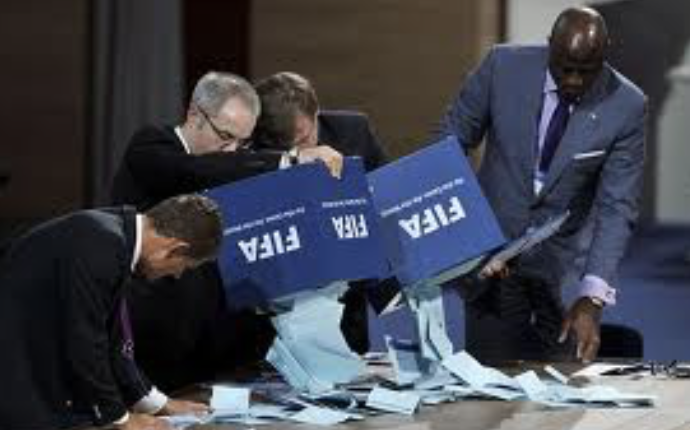By Andrew Warshaw
May 8 – Any suggestion that next month’s 2026 World Cup ballot will be refreshingly void of politics has been wiped away in one fell swoop by South Africa’s sudden change of heart about supporting fellow Africans Morocco.
One month after South Africa Football Association (SAFA) chief Danny Jordaan declared unequivocally that he was backing the underdogs, the South African government has intervened to state the opposite and announce that the country is behind the heavyweight joint bid of the United States, Canada and Mexico.
Political allegiances have long played a part in World Cup ballots but are not normally made public in advance due to FIFA’s strict regulations over government interference.
By publicly over-ruling its federation chief, South Africa has plunged its own footballing body into a potential conflict with FIFA which has the power to throw the country out of the ballot on June 13.
Last month Jordaan promised Morocco “unqualified support” in its drive to snatch the tournament away from the north American favourites. But at the weekend South Africa’s sport and recreation minister Tokozile Xasa countered: “We are very clear that we can’t support Morocco.”
“Our parliament was very straightforward in this regard‚ it is the mandate of the country and it is an obligation for sporting bodies to understand what the country’s agenda is.”
“But there is so much competition to host these kinds of games even in Africa. That’s why you can hear Danny Jordaan saying ‘I am going to assist Morocco in their bid to host the World Cup’.”
The two countries have had strained relations ever since Morocco withdrew its ambassador from Pretoria in 2004 when South Africa recognised the independence of the Saharawi Arab Democratic Republic‚ also known as the Western Sahara.
But the timing of Xasa’s intervention could not have been more poignant with both bid candidates making presentations in Brussels today in front of the International Sports Press Association. Her comments also fuelled the general perception that the African vote will be split on regional lines despite Morocco’s best efforts at gaining Continent-wide support.
In an effort to trouble-shoot any negative repercussions over a potential breach of bidding rules, SAFA issued a statement insisting no decision had yet been taken and made it clear it was up to the body’s executive, not Jordaan, to decide which candidate to support and that a mandate would be given to delegates attending the FIFA Congress in Moscow where the vote takes place on June 13.
“SAFA wants to reiterate that no decision has been taken at this stage on the matter on who to support. We hope that this clarifies Safa’ position going forward,” the statement said, seemingly contradicting an April post on the official federation website which has since been deleted.
With sensitivities at an all-time high following the corruption-plagued ballots of the past, the key question now is whether the unexpected intervention of the South African government will be viewed by FIFA as a breach of its rules. And, of course, whether it will be construed as a reaction to US President Donald Trump’s infamous tweets that appeared to allegedly threaten trade partners countries who vote for Morocco over United 2026.
Contact the writer of this story at moc.l1745695541labto1745695541ofdlr1745695541owedi1745695541sni@w1745695541ahsra1745695541w.wer1745695541dna1745695541

